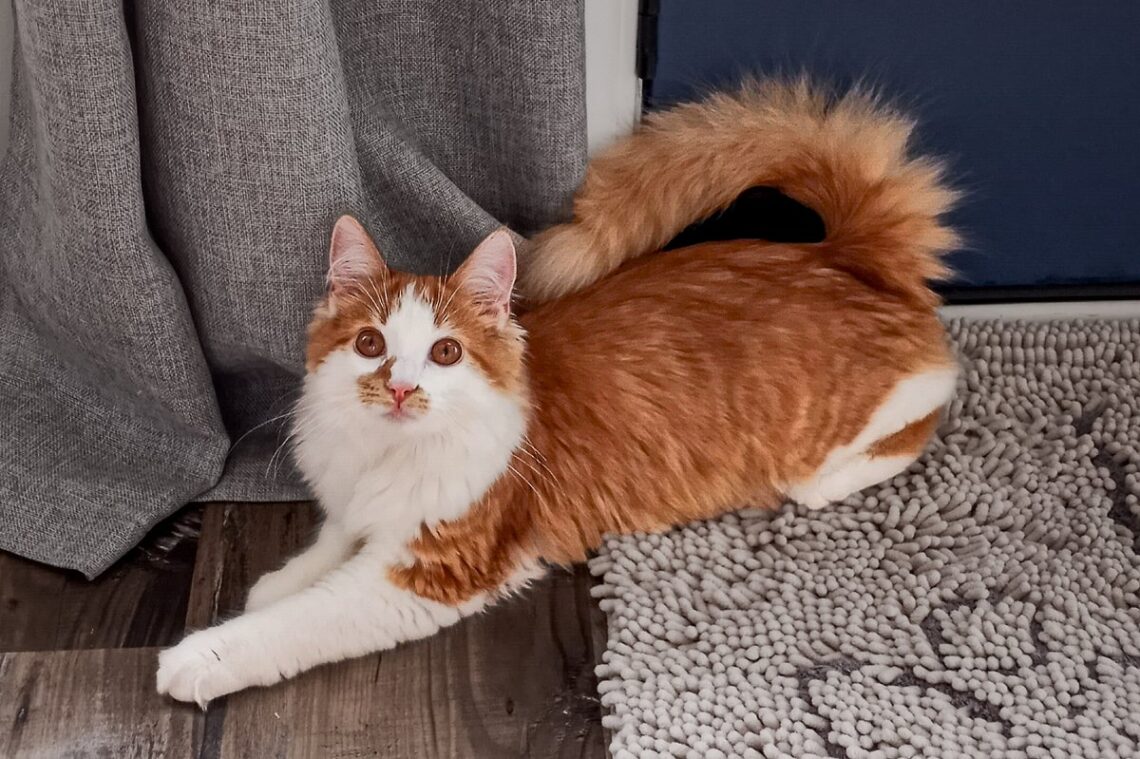November 15, 2024
3 min read
Miaou! Curly Tails Give Cats an ‘Accent’
A genetic mutation makes some cats’ tail curl over their back, giving them something akin to an accent when they communicate with other kitties
Baby the cat has a genetic mutation that makes his tail curl over his back in a spitz-like position.
Owning a cat with a trendy feature, such as a “salty licorice” coat color or the flat face of a Persian feline, might be the cat’s meow. But some trends—including a curled-back tail that’s gaining popularity among owners—may unintentionally complicate a kitty’s social life. These cute but unusual tails could give a feline a sort of nonverbal “accent” to other cats (or humans), researchers say.
Cats have a large repertoire of body language signals. They arch their back, raise their fur and flatten their ears to communicate fear or stress. They squint, knead their paws and rub their head against someone when showing affection and trust. And one of their most common “contentment” cues is a simple straight-up tail—held vertical and sometimes a little curved at the tip—which translates to other kitties as “Hey there, friend!”
Morgane Van Belle, a feline ethologist at Ghent University in Belgium, was researching cat-to-cat interactions in people’s homes when she came across some surprising tails that bent completely over the cats’ backs. Participants sent her videos of two cats from unrelated households that could wave, swish, twitch and drop their tail but couldn’t hold it straight up. The owners said their respective cats’ tail had always been this way, suggesting a genetic mutation—one that is likely also involved in a new breeding effort to promote curly tails. The proposed name for the breed with this trait is the American ringtail (not to be confused with the small mammal from the raccoon family).
On supporting science journalism
If you’re enjoying this article, consider supporting our…
Read the full article here

